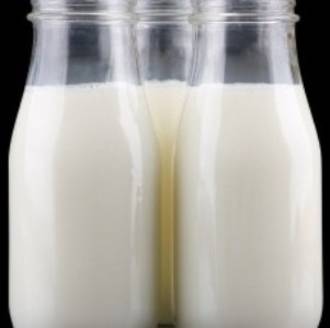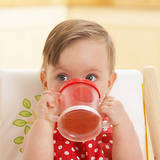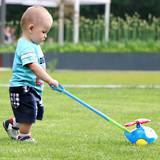Shop
01889
https://www.under5s.co.nz/shop/Hot+Topics+Articles/Health+%26+Wellbeing/Babies/Cows+milk+allergy.html
Cows milk allergy
|
Cows’ milk is one of the most common causes of food allergy in young children, affecting about one in 50 children in New Zealand. So what is cows’ milk allergy? We take a look at the symptoms and management of cows’ milk allergy.
|
You might also be interested in ...
6 Tips on weaning your baby
The weaning process may take several weeks to several months depending on the number of feeds you are giving. We take a look at weaning babies 9 months and under, weaning babies 9 months and older, breast care, weaning from a bottle and what to do if your child won’t drink milk from a bottle or sipper cup.
Are you a helicopter feeder?
Are you inadvertently a helicopter feeder? Watching your baby or toddler closely as they eat? Following every spoonful they put into their mouth?
join usJoin us on social media for all our latest news. |
sign upSign up and receive our latest newsletters. |
|







Cows' milk allergy (CMA) is a reaction to cows' milk that results from a hypersensitive immune response to one or more milk proteins.
It is some comfort to know that most children eventually outgrow their allergy and although symptoms can persist into adulthood, it is rare.
By the time they are 8 years old around 50% have outgrown their allergy and around 80% have outgrown it by the time they are 16 years old.
However, before reintroducing cows' milk it is very important to seek the advice of your GP or medical specialist.
Does your child have cows milk allergy?
1. Milk allergy or milk intolerance
Lactose intolerance should not be confused with milk allergy.
A food allergy, such as cows' milk allergy, involves a reaction, immediate or delayed, of your child's immune system to the protein in a particular food.
Food intolerance on the other hand differs in that the reaction does not involve their immune response.
Lactose intolerance occurs because of your child's body's inability to break down the lactose in milk, causing bloating, abdominal pain and diarrhoea.
2. Symptoms of cows' milk allergy
Most babies with cows' milk allergy develop symptoms within the first few months of their life. It is rare for symptoms to begin after the age of 12 months.
Symptoms of cows' milk allergy can include a skin rash, wheezing, constipation, distress, swelling of the lips, face or eyes, hives or welts and sometimes tingling of the mouth.
In some children, gastrointestinal symptoms can include diarrhoea, reflux, vomiting or poor weight gain.
Reactions can also include eczema.
3. Obtaining a diagnosis
It is important to obtain a correct diagnosis for milk allergy.
Parents should consult a GP if they suspect their little one has a milk allergy and request a referral to a paediatric allergy specialist if appropriate.
4. Management of cows' milk allergy
The recommended management approach to cows' milk allergy is to completely avoid cows' milk protein. However milk is an important food for infants, so cutting it out from your baby's diet may put them at risk of poor growth.
If your child is diagnosed with cows' milk allergy, your GP or healthcare professional can prescribe a hypoallergenic formula that will provide rapid relief of the symptoms and enable their optimal growth and development.
5. Other types of milk to avoid
Baby and infant formulas not suitable for the management of cows' milk allergy include soy milk, sheep and goats milk and 'milks' based on cereals, grains and legumes.
Soy-based infant formulas should not be used for the dietary management of cows' milk allergy in children under the age of six months old.
Soy-based infant formulas are not routinely recommended because of their high content of phytoestrogens (compounds that mimic the action of the female hormone oestrogen) found in soy, which could pose a risk to their long-term reproductive health.
There is also cross-reactivity between cows' milk protein and soy protein, which means that some infants allergic to cows' milk will also be allergic to soy milk.
Sheep's milk and goats' milk are not suitable for the dietary management of milk allergies as these can also cause an allergic reaction in children with cows' milk allergy.
'Milks' based on cereals, grains and legumes (ie oat milk, rice milk, pea milk etc) are unsuitable for young children with milk allergy because they are nutritionally inadequate.
More kids food articles for you to enjoy:
- Food intolerance in kids
- Drinks you can give toddlers & pre-schoolers as well as water or milk
- Are kids yoghurts doing more harm than good?
Image source: babygooroo.com